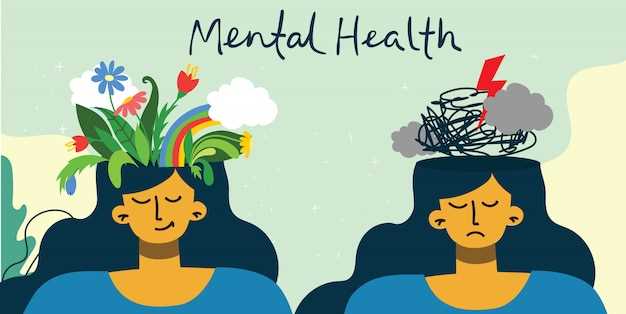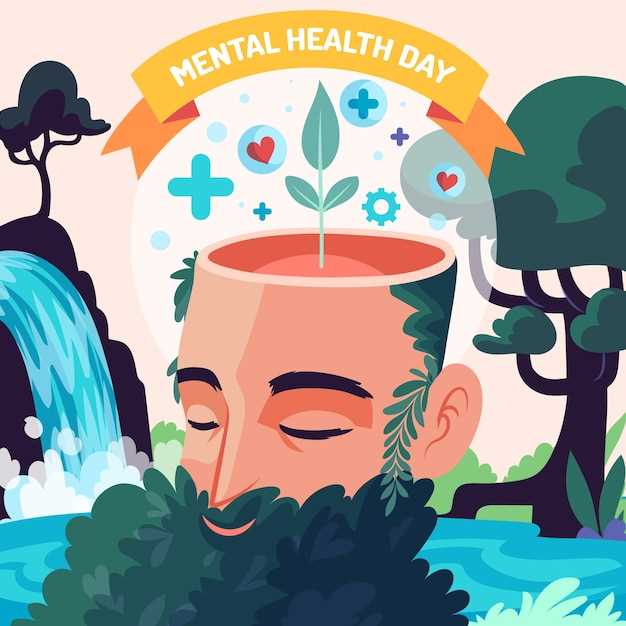
In the fast-paced and demanding environment of today’s society, it is no surprise that many individuals find themselves grappling with the overwhelming pressures and strains that life throws their way. The constant juggling of responsibilities, the relentless pursuit of success, and the ever-increasing demands of technology can leave us feeling mentally drained and emotionally depleted. However, amidst this chaotic whirlwind, it is crucial to prioritize our mental well-being and seek effective ways to manage the stress that inevitably accompanies our daily lives.
Embracing a holistic approach to self-care, we can embark on a journey towards achieving inner balance and emotional resilience. By recognizing the importance of nurturing our mental health, we can equip ourselves with the tools necessary to navigate the challenges of the modern world. This entails cultivating a deep understanding of our own emotions, developing healthy coping mechanisms, and fostering a sense of self-compassion that allows us to thrive even in the face of adversity.
One key aspect of maintaining mental well-being is the ability to identify and acknowledge our emotions. Often, we find ourselves caught up in the whirlwind of responsibilities and obligations, neglecting to pause and reflect on how we truly feel. By honing our emotional intelligence, we can gain insight into our own emotional landscape, allowing us to respond to stressors in a more mindful and constructive manner. This heightened self-awareness empowers us to make conscious choices that align with our values and priorities, ultimately leading to a greater sense of fulfillment and contentment.
Recognizing the Signs of Stress

In today’s fast-paced and demanding society, it is crucial to be able to identify the indicators of stress in order to effectively manage our mental well-being. Recognizing the signs of stress allows us to take proactive measures to address and alleviate its impact on our daily lives.
One of the key signs of stress is a persistent feeling of being overwhelmed or unable to cope with the demands of our daily responsibilities. This can manifest as a sense of constant pressure, anxiety, or irritability. Additionally, physical symptoms such as headaches, muscle tension, and fatigue may also indicate the presence of stress.
Another common sign of stress is a change in our sleep patterns. This can include difficulty falling asleep, staying asleep, or experiencing restless nights. Sleep disturbances can further exacerbate stress levels, creating a vicious cycle that negatively impacts our overall well-being.
Furthermore, stress often affects our ability to concentrate and make decisions. We may find ourselves easily distracted or experiencing a lack of focus, leading to decreased productivity and increased frustration. Additionally, stress can also impact our memory and ability to retain information, further hindering our performance in various aspects of life.
Emotional changes are also indicative of stress. These can include feelings of sadness, irritability, or mood swings. Stress can amplify our emotional responses, making us more prone to anger or frustration. It is important to recognize these emotional changes and address them in order to maintain a healthy mental state.
Lastly, stress can also manifest in physical symptoms such as changes in appetite or digestive issues. Some individuals may experience a decrease in appetite, leading to weight loss, while others may turn to food as a coping mechanism, resulting in weight gain. Digestive problems such as stomachaches, indigestion, or even ulcers can also be signs of stress.
In conclusion, being able to recognize the signs of stress is crucial for managing our mental well-being in today’s hectic world. By identifying these indicators, we can take proactive steps to address and alleviate stress, ultimately leading to a healthier and more balanced life.
Prioritizing Self-Care: The Key to Stress Management

In today’s fast-paced and demanding world, it is crucial to recognize the importance of prioritizing self-care as a fundamental aspect of managing stress effectively. By placing emphasis on self-care, individuals can cultivate a healthier mindset and develop strategies to cope with the challenges of daily life.
One essential component of prioritizing self-care is acknowledging the significance of mental and emotional well-being. Taking the time to nurture one’s mental health can lead to increased resilience, improved focus, and enhanced overall well-being. Engaging in activities such as meditation, journaling, or seeking therapy can provide individuals with the tools to better manage stress and maintain a balanced state of mind.
Another vital aspect of self-care is recognizing the importance of physical health. Regular exercise, a nutritious diet, and sufficient sleep are all essential elements that contribute to overall well-being. Engaging in physical activities not only helps to reduce stress levels but also boosts energy levels and promotes a sense of accomplishment. Prioritizing self-care in this aspect allows individuals to better cope with the demands of their hectic lives.
Additionally, fostering healthy relationships and social connections is crucial for self-care. Surrounding oneself with a supportive network of friends and loved ones can provide a sense of belonging and emotional support. Taking the time to nurture these relationships through regular communication and quality time can significantly contribute to reducing stress levels and promoting mental well-being.
Lastly, it is important to recognize the significance of leisure and recreational activities in self-care. Engaging in hobbies, pursuing creative outlets, or simply taking time for relaxation and enjoyment can help individuals recharge and rejuvenate. By incorporating these activities into their routine, individuals can effectively manage stress and maintain a healthy work-life balance.
In conclusion, prioritizing self-care is the key to managing stress in today’s fast-paced world. By focusing on mental and emotional well-being, physical health, nurturing relationships, and engaging in leisure activities, individuals can develop effective strategies to cope with the demands of their hectic lives and achieve a state of overall well-being.
Building Resilience: Strengthening Your Mental Health
In today’s fast-paced and demanding world, it is crucial to prioritize our mental well-being and develop strategies to manage the challenges we face. Building resilience is an essential aspect of strengthening our mental health, enabling us to bounce back from setbacks, adapt to change, and thrive in the face of adversity.
Understanding Resilience
Resilience is the ability to cope with and recover from difficult or stressful situations. It involves developing a positive mindset, cultivating emotional strength, and fostering a sense of self-belief. Resilient individuals are better equipped to handle the pressures of life, maintain a balanced perspective, and navigate through obstacles with resilience and determination.
Building Resilience: Key Strategies
1. Cultivating a Supportive Network: Surrounding yourself with a strong support system of friends, family, and mentors can provide emotional support, guidance, and encouragement during challenging times. Sharing experiences and seeking advice from trusted individuals can help build resilience and foster a sense of belonging.
2. Practicing Self-Care: Taking care of your physical, emotional, and mental well-being is crucial for building resilience. Engaging in activities that bring you joy, practicing mindfulness and relaxation techniques, and prioritizing self-care can help reduce stress, enhance self-awareness, and promote overall mental well-being.
3. Developing Problem-Solving Skills: Building resilience involves developing effective problem-solving skills. By approaching challenges with a solution-oriented mindset, breaking them down into manageable steps, and seeking creative solutions, you can enhance your ability to overcome obstacles and adapt to change.
4. Embracing Change and Uncertainty: Resilient individuals embrace change as an opportunity for growth and learning. They recognize that change is inevitable and view it as a chance to develop new skills, broaden their perspectives, and discover new possibilities. Embracing uncertainty with an open mind and a flexible attitude can help build resilience and strengthen mental health.
5. Practicing Positive Thinking: Cultivating a positive mindset is essential for building resilience. By focusing on strengths, reframing negative thoughts, and practicing gratitude, you can enhance your ability to cope with stress, maintain optimism, and bounce back from setbacks.
Building resilience is a lifelong journey that requires commitment, self-reflection, and practice. By incorporating these strategies into your daily life, you can strengthen your mental health, enhance your ability to manage stress, and thrive in today’s hectic world.
Mindfulness and Meditation: Finding Inner Peace
In the fast-paced and chaotic world we live in, it can be challenging to find moments of tranquility and inner peace. However, by practicing mindfulness and meditation, we can cultivate a sense of calm and serenity amidst the chaos.
Mindfulness involves being fully present in the moment, paying attention to our thoughts, feelings, and sensations without judgment. It allows us to observe our experiences with a sense of curiosity and acceptance, rather than getting caught up in the whirlwind of stress and anxiety.
Meditation, on the other hand, is a practice that involves training our minds to focus and redirect our thoughts. By engaging in regular meditation sessions, we can develop a greater sense of self-awareness and learn to let go of negative thoughts and emotions that contribute to our stress levels.
One of the key benefits of mindfulness and meditation is their ability to help us find inner peace. By practicing these techniques, we can create a space within ourselves where we can retreat to and find solace, regardless of the external circumstances.
Through mindfulness and meditation, we can learn to quiet the noise of the outside world and cultivate a sense of stillness within. This inner stillness allows us to connect with our true selves, tap into our inner wisdom, and find a deep sense of peace and contentment.
Moreover, mindfulness and meditation can also help us develop resilience and cope with the challenges that life throws at us. By training our minds to stay present and focused, we can better navigate stressful situations and approach them with a calm and composed mindset.
In conclusion, incorporating mindfulness and meditation into our daily lives can have profound effects on our mental well-being. By finding moments of inner peace amidst the hectic world we live in, we can reduce stress, enhance our overall well-being, and cultivate a greater sense of happiness and fulfillment.
The Power of Physical Activity: Exercise as a Stress Reliever
Engaging in physical activity can be a powerful tool for alleviating stress and promoting overall well-being. By incorporating exercise into our daily routines, we can effectively manage the pressures of our fast-paced and demanding lives. Physical activity not only benefits our physical health but also has a profound impact on our mental and emotional well-being.
Regular exercise has been shown to release endorphins, commonly known as “feel-good” hormones, which can help reduce feelings of stress and anxiety. These natural chemicals act as mood enhancers, promoting a sense of happiness and relaxation. Additionally, physical activity increases blood flow to the brain, improving cognitive function and boosting our ability to focus and concentrate.
Exercise also provides an opportunity to disconnect from the constant demands and distractions of our modern world. Whether it’s going for a run, practicing yoga, or participating in a team sport, engaging in physical activity allows us to shift our focus away from our worries and concerns. It provides a much-needed break from the mental strain of our daily lives, allowing us to recharge and rejuvenate.
Furthermore, physical activity can serve as a form of self-care and self-expression. It allows us to prioritize our own well-being and dedicate time to ourselves. Whether it’s a solo workout session or joining a fitness class, exercise provides a space for personal growth and self-reflection. It can be a way to challenge ourselves, set goals, and achieve a sense of accomplishment, which in turn boosts our self-esteem and confidence.
Incorporating physical activity into our lives doesn’t have to be complicated or time-consuming. It can be as simple as taking a brisk walk during our lunch break, cycling to work, or practicing a few minutes of stretching and deep breathing exercises. The key is to find activities that we enjoy and that fit into our schedules. By making exercise a priority, we can harness its power as a stress reliever and improve our overall mental well-being.
In conclusion, physical activity is a valuable tool for managing stress in our hectic world. By engaging in regular exercise, we can tap into its numerous benefits, including the release of endorphins, the opportunity to disconnect from our worries, and the promotion of self-care and self-expression. So, let’s prioritize physical activity and embrace its power as a stress reliever for our mental well-being.
Seeking Support: The Importance of Social Connections
In today’s fast-paced and demanding society, it is crucial to recognize the significance of social connections in managing the pressures and challenges of daily life. The support and companionship provided by our relationships with others play a vital role in promoting mental well-being and overall happiness.
Human beings are inherently social creatures, and our need for connection with others is deeply ingrained in our nature. Whether it is through friendships, family bonds, or romantic relationships, social connections provide us with a sense of belonging, understanding, and emotional support. They offer a safe space where we can express ourselves, share our thoughts and feelings, and seek guidance and advice.
When we face stress, anxiety, or overwhelming situations, having a strong support system can make a significant difference in our ability to cope and navigate through these challenges. The presence of caring and empathetic individuals can provide us with a sense of reassurance, validation, and perspective. They can offer a listening ear, offer practical help, or simply be a source of comfort during difficult times.
Moreover, social connections can also contribute to our overall mental well-being by promoting a sense of purpose and fulfillment. Engaging in meaningful relationships and activities with others can give us a sense of belonging and purpose, boosting our self-esteem and confidence. It can also provide opportunities for personal growth, learning, and expanding our horizons.
However, in today’s fast-paced world, it is easy to neglect or overlook the importance of social connections. The demands of work, technology, and other distractions often leave little time for nurturing and maintaining relationships. It is essential to prioritize and invest time and effort in building and sustaining meaningful connections with others.
In conclusion, seeking support through social connections is crucial for managing stress and promoting mental well-being in today’s hectic and demanding world. By recognizing the importance of these relationships and actively nurturing them, we can enhance our ability to cope with challenges, find fulfillment, and lead happier, more balanced lives.
